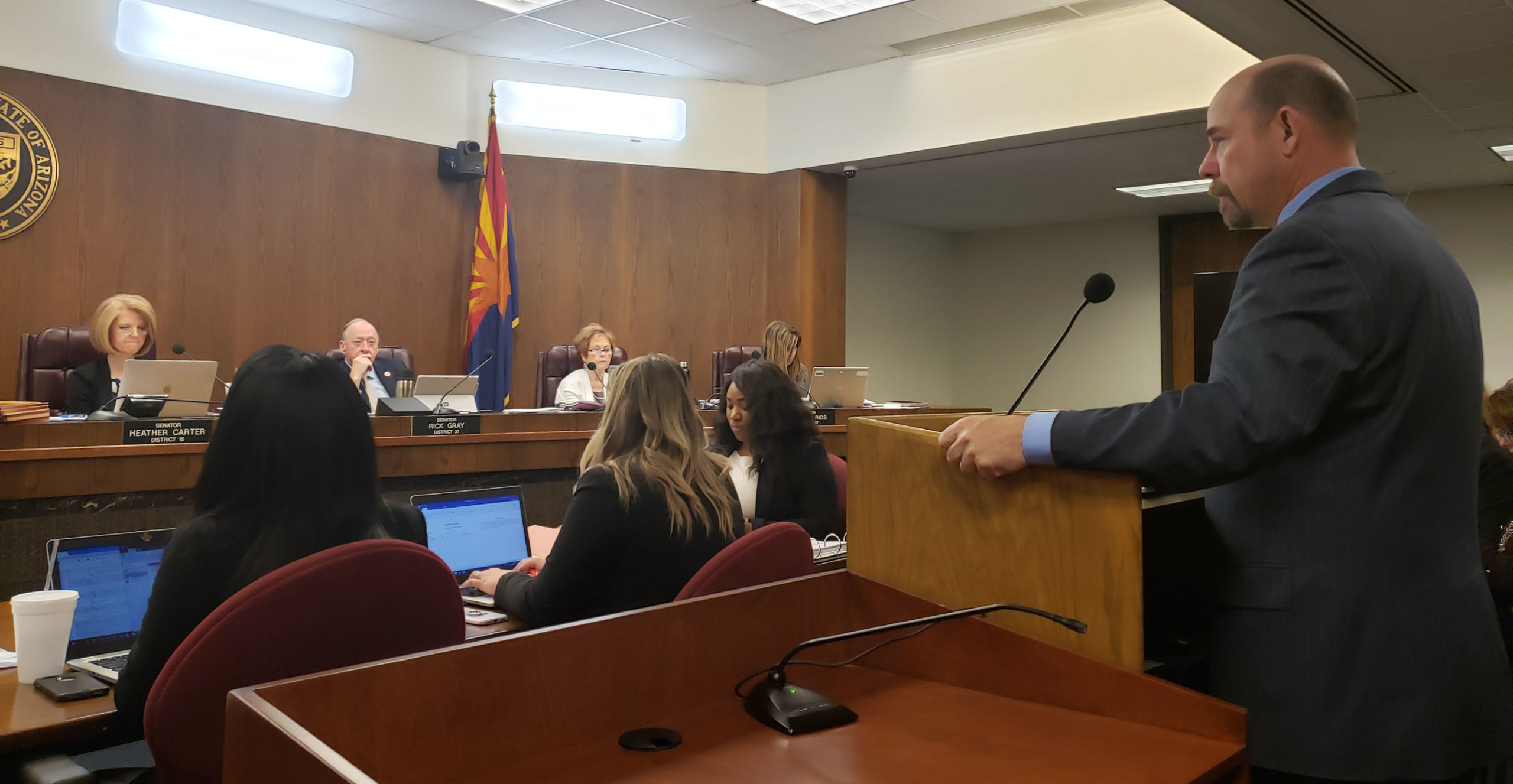BY JARED PAGE, ACM contributor
PHOENIX – A bill that establishes sanitary standards and product testing at Arizona medical marijuana dispensaries, and another that prioritizes licensing for dispensaries in rural areas advanced Wednesday at the state Senate.
The two medicinal cannabis-related bills (SB1286 & SB1494), along with SCR1021, a concurrent resolution calling for — among other things — fingerprinting of dispensary agents and caregivers, all received unanimous “do-pass” recommendations from the Senate Health and Human Services Committee.
Bill sponsor, Sen. David Gowan (R-LD14) said SB194 directs the Arizona Department of Health Services to establish product testing at dispensaries for bacteria, pesticides and mold. Gowan’s bill also calls for the department to develop a medical marijuana testing library, modeled after the Colorado program. Gowan’s testing bill was one of four MMJ testing bills filed this session in the wake of last year’s failed testing effort by Gowan ally, Sen Sonny Borrelli (R-LD5)
The bill’s testing protocol and library would offer protections for the state’s medical marijuana patients, said Gowan, who worked with the medical cannabis community to craft the bill.
Parisa Mansouri-Rad, the mother of a medical marijuana patient, was among those who spoke in favor of the testing standards. Her daughter’s life, she said, “depends on this medicine,” and it can’t be compromised by pesticides or mold. Ironically, Rad’s daughter Yasmin is currently on a feeding tube due to contaminated prescription opiates.
“Many people’s lives depend on clean medicine,” Mansouri-Rad said.
Another Gowan bill, SB1286, seeks to address access to medical marijuana in rural areas. In the past three years, dozens of rural dispensaries have opted to move to more patient-rich areas after three years of operation, as allowed under state code.
“At one point, 95 percent of the state was covered by a dispensary region, and now it’s less than 60 percent,” Gowan said.
Dr. Will Humble, director of Arizona Department of Health Services when the Arizona Medical Marijuana Act was passed by voters in 2010, was also on hand to testify. The three-year rule was put in place, Humble said, “to provide an incentive for folks to apply for dispensary registration certificates in rural areas.”
The goal, he said, was to make sure rural patients had access to medical marijuana while limiting the number of people who could grow their own cannabis because they live more than 25 miles from a dispensary.
“In order to do that, we put in a provision that allows dispensaries to move after three years,” said Humble, now executive director of the Arizona Public Health Association.
“By doing so, we got a lot of applications in the rural part of the state,” he said, “but folks moved after three years.”
Humble said it was his intention that the dispensary-licensing process would give priority to those rural areas where dispensaries had left. Instead, priority was given to placing new dispensaries in urban areas with the highest patient density. SB1286 seeks to correct the formula.
“What this bill wants to do is get these dispensaries back out to where (rural) patients have access,” Gowan said. “You have a lot of older people who utilize this medicine, and they need to be able to have a dispensary around them to get to so so they can get their medicine.”
Both of Gowan’s bill were sent to the full Senate by unanimous votes.

Also advancing was Sen. Sonny Borrelli’s SCR1021, a resolution hitting on a variety of issues, including calling for fingerprinting of caregivers and dispensary agents, allowing for on-the-spot inspections of dispensaries and involving the state Department of Agriculture in product testing.
The Marijuana Trade Industry Association of Arizona has opposed the bill, calling it “growing government” because dispensaries already fall under the jurisdiction of health services. That bill passed the committee by a 5-3 vote.
Another medical marijuana-related bill, SB1138, was held by the committee at the request of its sponsor, Borrelli. That bill sought to reduce the cost of state medical marijuana cards to $50 and extend card expirations to two years.
Jared Page is a Phoenix-based freelance journalist with more than 20 years of newsroom experience. Contact him at jaredpage.az@gmail.com.


